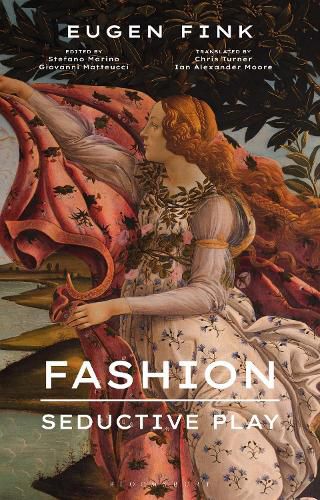Readings Newsletter
Become a Readings Member to make your shopping experience even easier.
Sign in or sign up for free!
You’re not far away from qualifying for FREE standard shipping within Australia
You’ve qualified for FREE standard shipping within Australia
The cart is loading…






In Germany, 1969, Eugen Fink's Fashion: Seductive Play was published. This first English language edition, updated with an introduction by Stefano Marino and Giovanni Matteucci, makes available Fink's philosophical investigation into fashion to an English-speaking audience. One of the greatest figures in the "phenomenological movement," Fink here investigates fashion at various philosophical levels - aesthetic, ethical, social - and in relationship to other forms of human culture, especially contemporary culture.
Although there have been many transformations and changes in the world of fashion since the late 1960s, from pret-a-porter to fast fashion, fashion's connection to both high culture and popular culture, and the new relationship between fashion and the advent of social media, Fink's insights allow wide-ranging and far-reaching inquiries into fashion's philosophical essence. Fink's extraordinary lucidity and his unique conceptual capacities have made his work crucial to the study of the philosophy of fashion today. His work, like that of Simmel's, Veblen's or Benjamin's, is as essential and important now as when it was first published.
$9.00 standard shipping within Australia
FREE standard shipping within Australia for orders over $100.00
Express & International shipping calculated at checkout
In Germany, 1969, Eugen Fink's Fashion: Seductive Play was published. This first English language edition, updated with an introduction by Stefano Marino and Giovanni Matteucci, makes available Fink's philosophical investigation into fashion to an English-speaking audience. One of the greatest figures in the "phenomenological movement," Fink here investigates fashion at various philosophical levels - aesthetic, ethical, social - and in relationship to other forms of human culture, especially contemporary culture.
Although there have been many transformations and changes in the world of fashion since the late 1960s, from pret-a-porter to fast fashion, fashion's connection to both high culture and popular culture, and the new relationship between fashion and the advent of social media, Fink's insights allow wide-ranging and far-reaching inquiries into fashion's philosophical essence. Fink's extraordinary lucidity and his unique conceptual capacities have made his work crucial to the study of the philosophy of fashion today. His work, like that of Simmel's, Veblen's or Benjamin's, is as essential and important now as when it was first published.